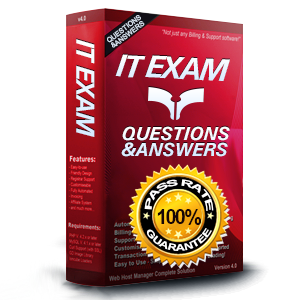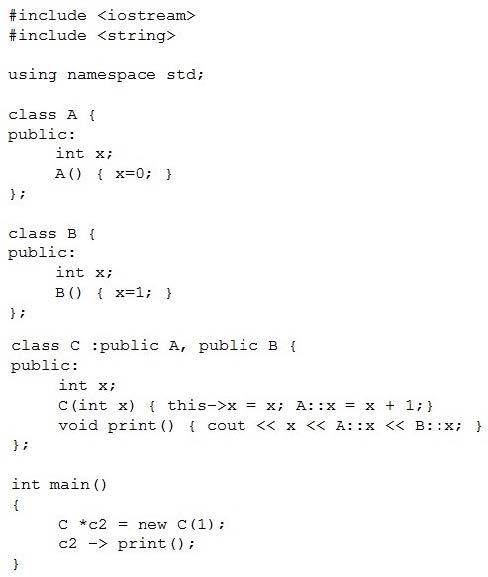
CPA-21-02 Exam Questions & Answers
Exam Code: CPA-21-02
Exam Name: CPA - C++ Certified Associate Programmer
Updated: Nov 25, 2024
Q&As: 257
At Passcerty.com, we pride ourselves on the comprehensive nature of our CPA-21-02 exam dumps, designed meticulously to encompass all key topics and nuances you might encounter during the real examination. Regular updates are a cornerstone of our service, ensuring that our dedicated users always have their hands on the most recent and relevant Q&A dumps. Behind every meticulously curated question and answer lies the hard work of our seasoned team of experts, who bring years of experience and knowledge into crafting these premium materials. And while we are invested in offering top-notch content, we also believe in empowering our community. As a token of our commitment to your success, we're delighted to offer a substantial portion of our resources for free practice. We invite you to make the most of the following content, and wish you every success in your endeavors.

Download Free C++ Institute CPA-21-02 Demo
Experience Passcerty.com exam material in PDF version.
Simply submit your e-mail address below to get started with our PDF real exam demo of your C++ Institute CPA-21-02 exam.
![]() Instant download
Instant download
![]() Latest update demo according to real exam
Latest update demo according to real exam
* Our demo shows only a few questions from your selected exam for evaluating purposes
Free C++ Institute CPA-21-02 Dumps
Practice These Free Questions and Answers to Pass the C++ Certified Professional Programmer Exam
What happens when you attempt to compile and run the following code?
#include
using namespace std;
int main()
{
int x=20;
int *ptr;
ptr = andx;
cout<<*ptr;
return 0;
}
A. It prints: 20
B. It prints: 0
C. It prints address of ptr
D. It prints: 2
What happens when you attempt to compile and run the following code?

A. It prints: 1
B. lt prints: 2
C. It prints: 111
D. It prints: 121
If a function, which is not a method, needs to save any value between its subsequent invocations, this can be done by: (Choose two.)
A. setting a variable declared inside the function with the static modifier
B. setting a parameter of the function
C. setting a variable declared outside the function
D. setting a variable declared inside the function without the static modifier
What will be the output of the program?
#include
using namespace std;
int main()
{
int i=0;
for(; i<=5; i++)
cout << i;
return 0;
}
A. 012345
B. 0123
C. 5
D. 6
What happens when you attempt to compile and run the following code?
#include
#include
using namespace std;
class complex{
double re, im;
public:
complex() : re(1),im(0.3) {}
complex(double n) { re=n,im=n;};
complex(int m,int n) { re=m,im=n;}
complex operator+(complex andt);
void Print() { cout << re << " " << im; }
};
complex complex::operator+ (complex andt){
complex temp;
temp.re = this?>re + t.re;
temp.im = this?>im + t.im;
return temp;
}
int main(){
complex c1(1),c2(2),c3;
c3 = c1 + c2;
c3.Print();
}
A. It prints: 1 1.5
B. It prints: 2 1.5
C. It prints: 3 3
D. It prints: 0 0
Viewing Page 1 of 3 pages. Download PDF or Software version with 257 questions

